From July 5 to 7, 2024, the 2024 International Conference on Neural Computing for Advanced Applications (NCAA) was successfully held in Guilin, Guangxi. NCAA is an annual international event in the fields of neural computing and artificial intelligence, with the theme "Make Academics Practical". The conference aims to promote academic discussions and industrial connections between cutting-edge theories of neural computing and their practical applications, providing a high-level platform for researchers, product developers, and industry professionals to exchange ideas and showcase innovations. The conference was hosted by the Asia-Pacific Association of Cognitive Intelligence (AACI), organized by Guangxi Normal University, and co-organized by Guilin University of Electronic Technology, Guilin University of Technology, and Shandong Jianzhu University. The event attracted widespread participation and attention from scholars worldwide, with submissions from institutions such as New York University, Hong Kong Polytechnic University, City University of Hong Kong, Hong Kong Metropolitan University, University of Johannesburg, University of Pretoria, University of South Africa, Ritsumeikan University (Japan), Technical University of Denmark, Zhejiang University, Harbin Institute of Technology, Wuhan University, Tongji University, Sun Yat-sen University, University of Electronic Science and Technology of China, Huazhong University of Science and Technology, Chongqing University, Beijing University of Posts and Telecommunications, Chinese Academy of Sciences, Beijing University of Technology, Shanghai University, Wuhan University of Technology, South China Normal University, Guangdong University of Technology, Chongqing University of Posts and Telecommunications, Hohai University, and Zhejiang University of Technology.
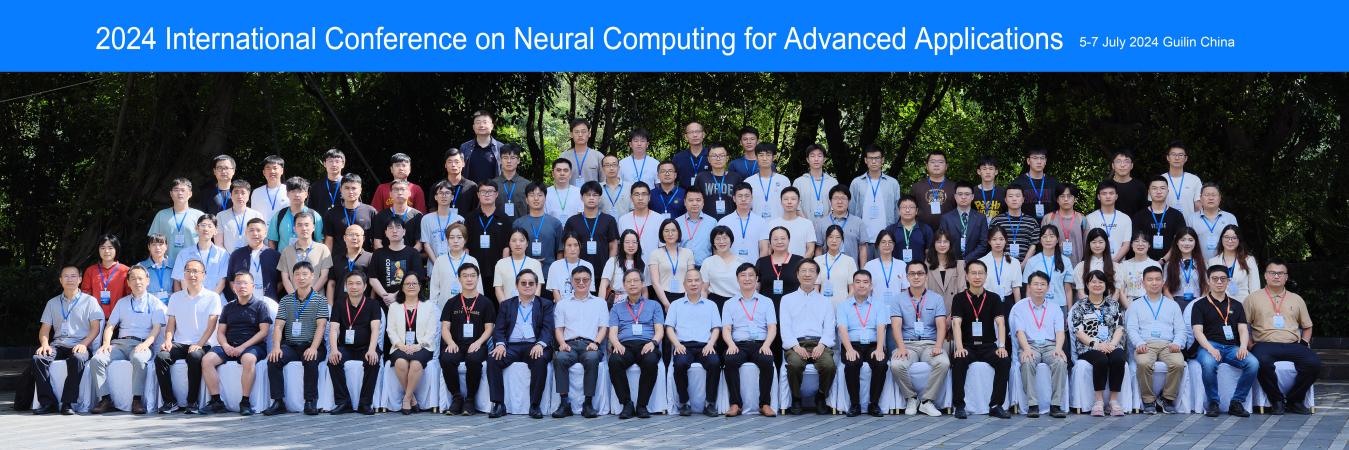
Group photo of participants of the 2024 International Conference on Neural Computing and Applications
The conference was held in Guilin, Guangxi, and adopted a hybrid format, combining online and offline participation. It attracted over 150 experts and scholars from institutions such as the University of Pretoria, University of Johannesburg, University of South Africa, Ritsumeikan University (Japan), National University of Malaysia, Singapore National Academy of Sciences, Chinese University of Hong Kong, City University of Hong Kong, Hong Kong Metropolitan University, Macau University of Science and Technology, and numerous mainland universities and research institutions. The live-streamed event garnered over 2,000 online viewers.
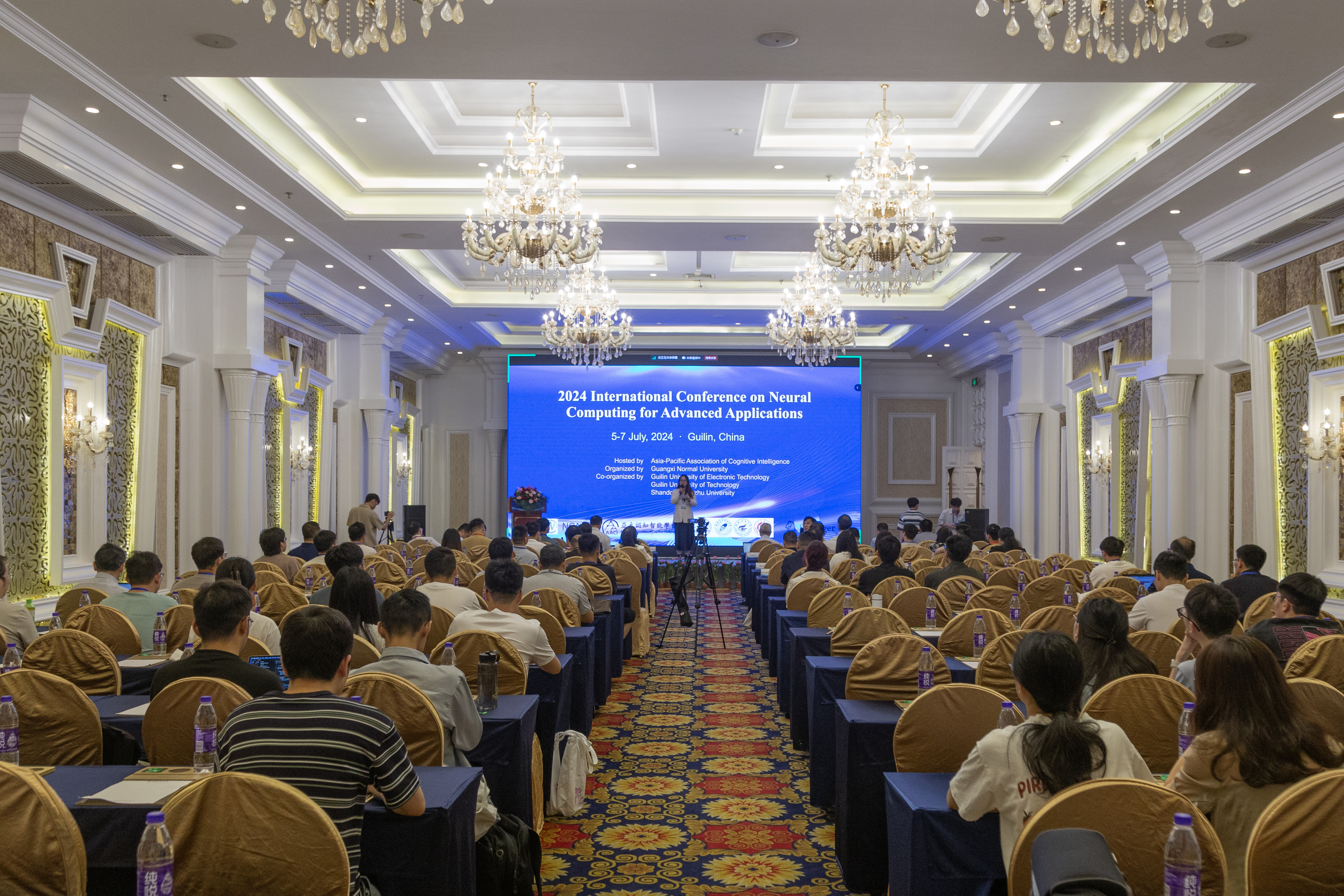
The opening ceremony of the meeting
The conference featured keynote speeches, tutorial sessions, the CCF-Yuegui Forum, the Women in Science Forum, and paper presentation sessions. The topics covered a wide range of interdisciplinary research areas, including neural network applications, machine learning and deep learning, heuristic optimization and neural computing, control and neural computing, pattern recognition and computer vision, natural language processing and recommendation systems, fault diagnosis and prediction, sequence learning and neural computing, multimodal learning and neural computing, edge intelligence and neural computing, data mining and neural computing, intelligent fault diagnosis and neural computing, and time series analysis and prediction. Notably, the CCF-Yuegui Forum on "Development and Applications of Large Model Technology" was jointly organized for the first time by AACI, CCF Guilin, and CCF Guangzhou.
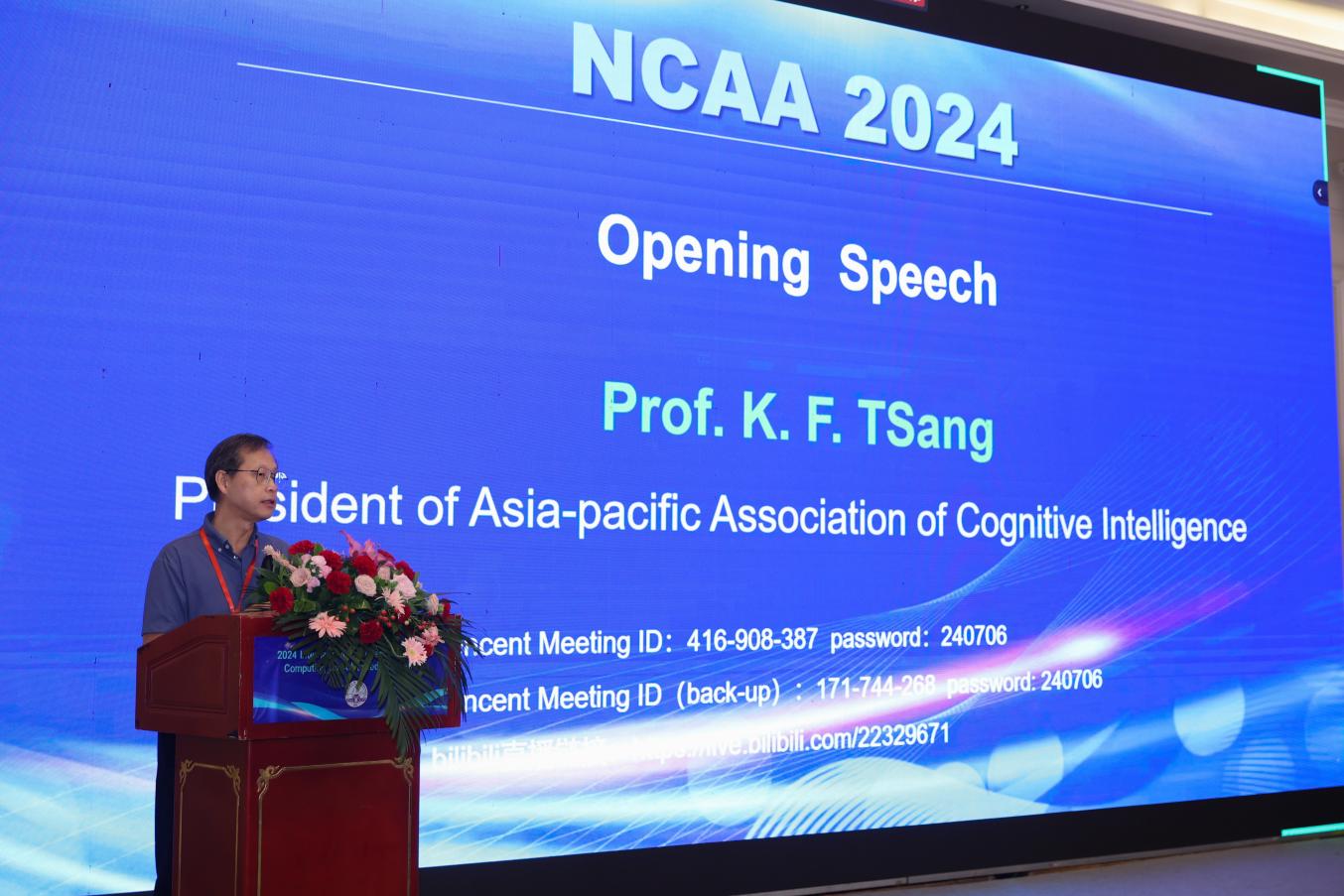
Prof. Kim-Fung Tsang, President of the Asia-Pacific Society for Cognitive Intelligence, delivered an opening speech.
The opening ceremony was held at the Guilin Grand Palace Hotel. Professor Kim-Fung Tsang, Chairman of the Asia-Pacific Association of Cognitive Intelligence, and Professor Li Xianxian, Standing Committee Member of the Party Committee and Vice President of Guangxi Normal University, delivered opening remarks. Professor Hao Tianyong from South China Normal University, Chair of the Program Committee, introduced the conference agenda and related details. The conference was attended by Professor Kim-Fung Tsang (City University of Hong Kong), Professor Zhang Haijun (Harbin Institute of Technology, Shenzhen), Professor Wu Zhou (Chongqing University), Professor Zhang Zhao (Hefei University of Technology), Professor He Qian and Professor Cai Guoyong (Guilin University of Electronic Technology), Professor Dong Minggang (Guilin University of Technology), Professor Tang Zhenjun (Executive Vice Dean of the School of Computer Science and Engineering, Guangxi Normal University), Professor Wang Li'e (Vice Dean of the School of Computer Science and Engineering, Guangxi Normal University), Professor Tang Suqin (Faculty of Education, Guangxi Normal University), as well as keynote speakers, invited guests, and conference delegates.
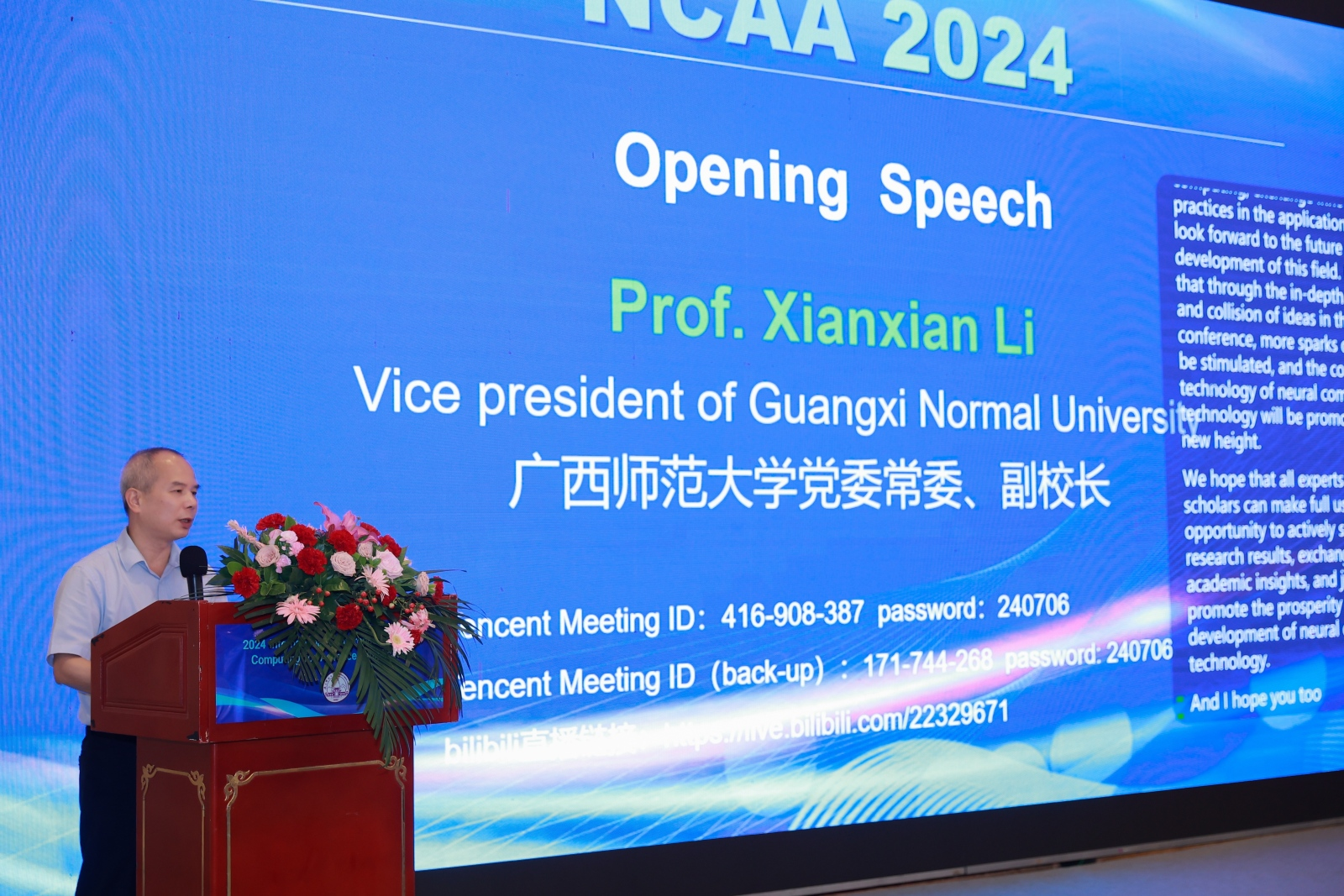
Professor Li Xianxian, Member of the Standing Committee of the Party Committee and Vice President of Guangxi Normal University, delivered a speech at the opening ceremony.
In his opening speech, Professor Kim-Fung Tsang welcomed the experts and scholars to the beautiful city of Guilin for NCAA 2024 and highlighted the conference's mission to provide a dynamic platform for researchers, developers, and industry professionals to exchange ideas, share insights, build partnerships, and drive the future development of the field. He also introduced the Greater Bay Area International Standards Innovation Center under preparation by AACI, emphasizing the importance of standardization for national strategy and scientific research, and outlined plans for collaborative projects with mainland, Hong Kong, and international standards organizations.
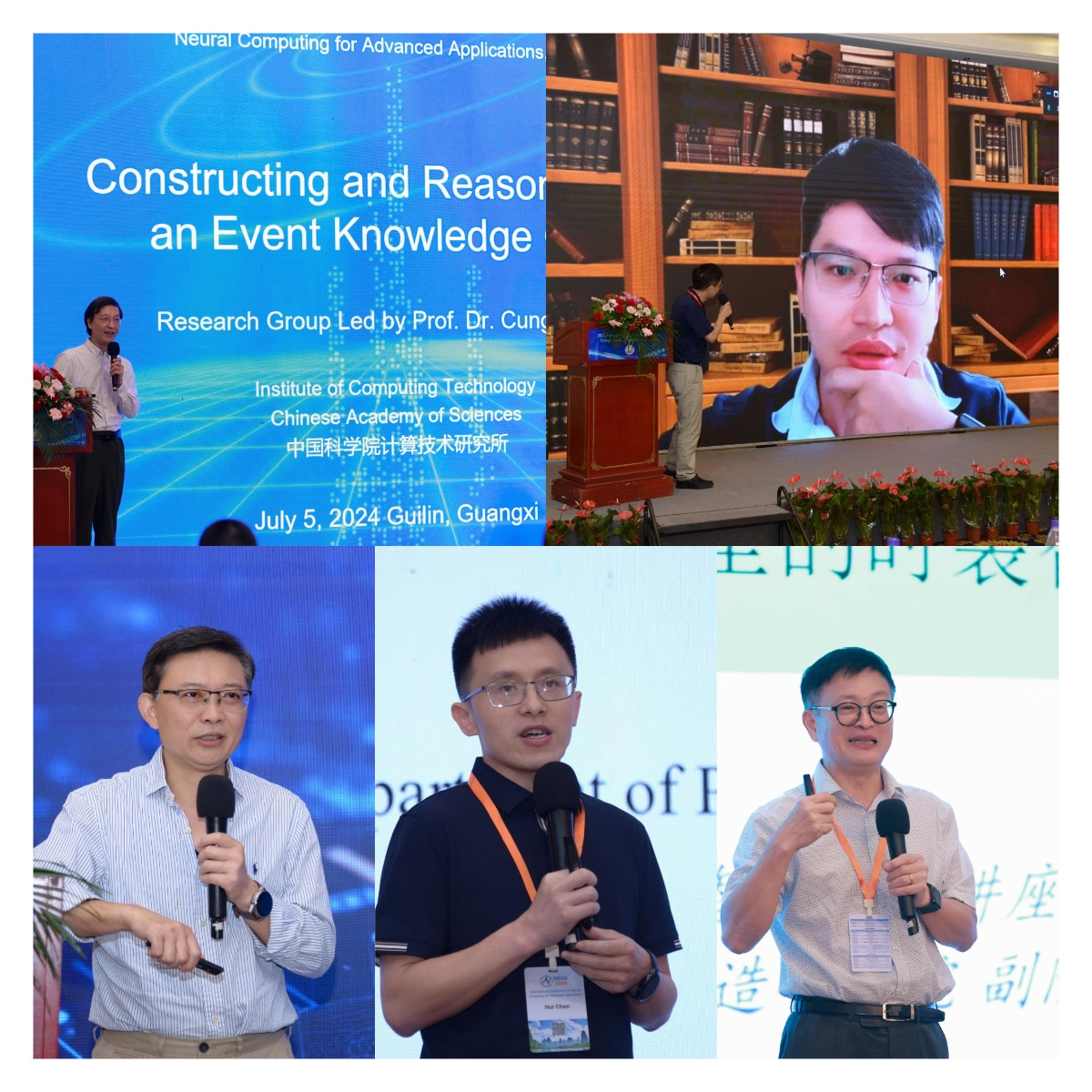
Keynote report of the conference
Professor Li Xianxian then delivered his opening remarks, warmly welcoming the attendees and expressing his gratitude. He provided an overview of Guangxi Normal University's development, highlighting its efforts to advance the "Double First-Class" initiative and comprehensive reforms, with the goal of becoming a nationally renowned, internationally recognized, and teacher-education-focused high-level university. He also noted that the School of Computer Science is one of the university's traditional strengths, offering a complete talent cultivation system from undergraduate to doctoral levels, and is home to Guangxi's only postdoctoral research station in computer science.
The keynote speeches were delivered by Professor George Q. Huang (Hong Kong Polytechnic University), Professor Cao Cungen (Chinese Academy of Sciences), Dr. Joey Zhou (Deputy Director of the AI Center, Singapore Academy of Sciences), Professor Li Yun (University of Electronic Science and Technology of China), and Professor Chen Hui (Zhejiang University). Professor Huang presented on "Smart Fashion Social Manufacturing with Industrial Large Model", sharing insights into the development of expert systems and progress on projects like ChatCustomers, ChatTailor, and ChatFactory. Professor Cao discussed "Constructing and Reasoning over an Event Knowledge Graph", showcasing his team's latest research on event knowledge graphs. Dr. Zhou explored "Dataset Distillation and Pruning: Streamlining Machine Learning Performance", highlighting advancements in optimizing machine learning workflows. Professor Li shared research on "Neural and Kolmogorov-Arnold Networks for Computer Automated Design", focusing on universal large language models. Professor Chen presented on "Unveiling the Mechanisms of Information Selection: Insights from Typical and Atypical Cognitive Processing", offering insights into information selection mechanisms. The keynote speakers are renowned for their significant achievements and academic influence, and their presentations were highly interdisciplinary, forward-looking, and innovative.
The conference also featured two tutorial sessions for young students and scholars, systematically introducing technical details and foundational principles. Dr. Gao Kaizhou (Macau University of Science and Technology) presented on "Learning Assisted Evolutionary Algorithms for Solving Complex Scheduling Problems", detailing the principles of swarm intelligence, key research areas, and applications in complex scheduling. Dr. Ji Yuzhu (Guangdong University of Technology) shared insights on "Human Motion Transfer: Techniques, Models and Applications", covering theories and algorithms for human motion transfer under different task settings and their applications in virtual reality, teleconferencing, and digital humans.
The CCF-Yuegui Forum on "Development and Applications of Large Model Technology" featured presentations by Dr. He Wanqing (Chief Engineer of Scientific Computing, Intel Data Center and AI Group) on "Challenges from Scientific Computing to AI Computing", Professor Hao Tianyong (South China Normal University) on "Frontier Developments and Domain Applications of Large Language Models", Professor Shen Yuming (Guangdong University of Foreign Studies) on "Synergy Between Large Language Models and Knowledge Graphs", and Professor He Qian (Guilin University of Electronic Technology) on "Exploration of Large Models and Smart Tourism Applications". The forum facilitated in-depth discussions and exchanges on large models and their applications.
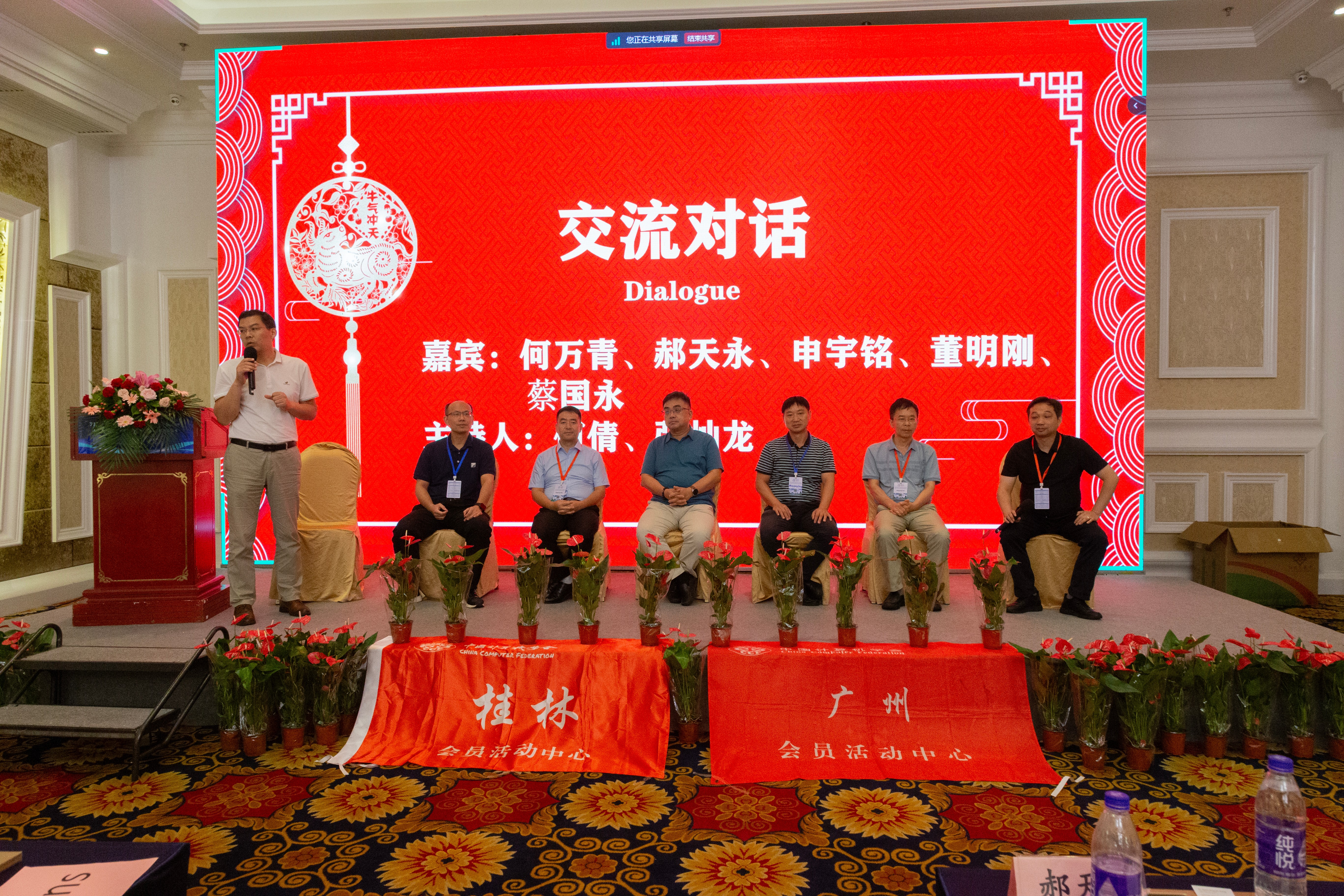
CCF-Guangdong-Guizhou Forum Expert Exchange and Dialogue
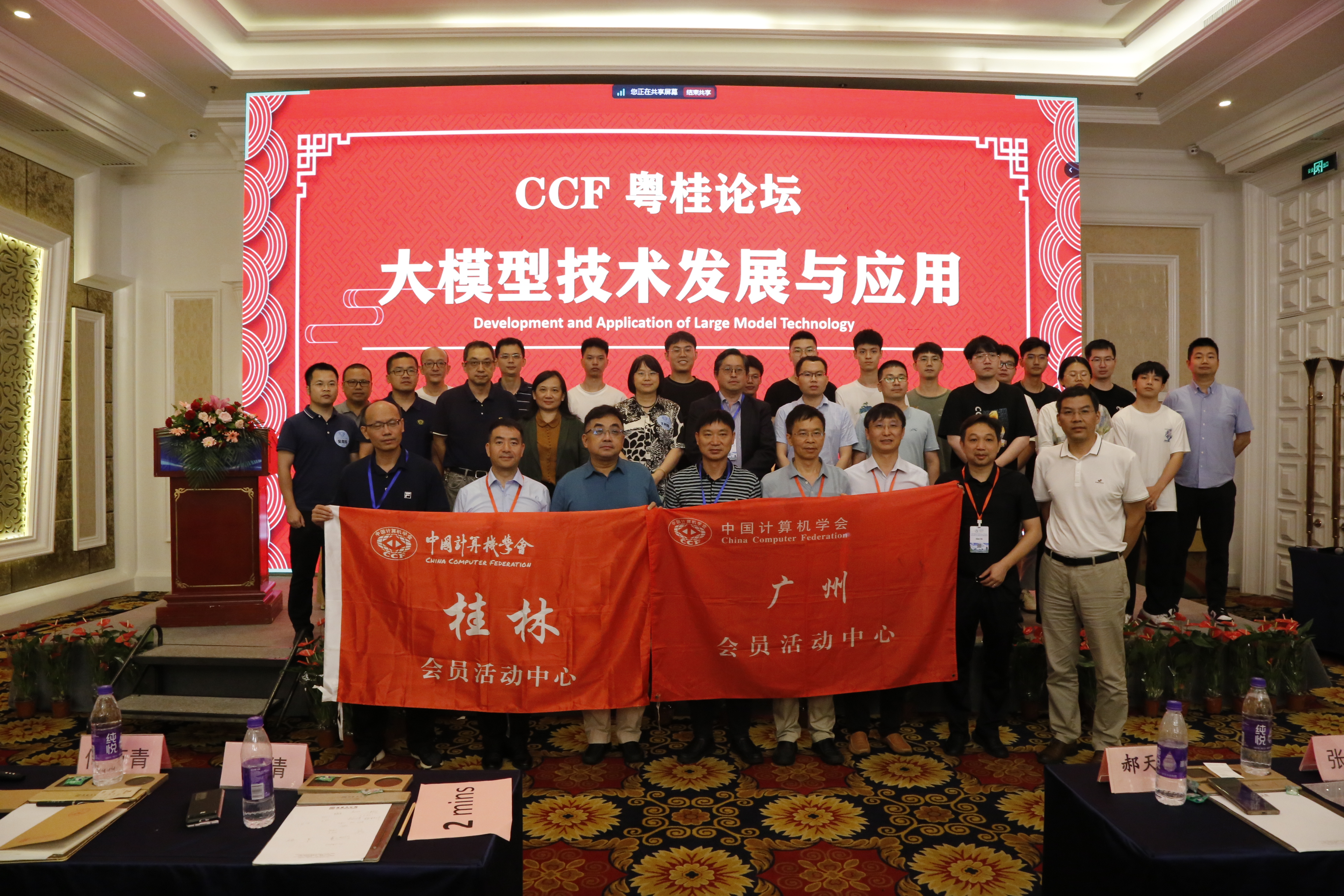
Group photo of CCF-Guangdong-Guizhou Forum
The Women in Science Forum, chaired by Assistant Professor Liu Mengbin (Chinese University of Hong Kong, Shenzhen), included presentations by Professor Lu Hui (Beihang University), Associate Professor Chen Jingjing (Fudan University), Associate Professor Li Xuefang (Sun Yat-sen University), and Professor Tang Suqin (Guangxi Normal University). The forum, themed "Empowering Technological Development Through Her Strength, Illuminating Student Growth Through Her Light", not only showcased the achievements of female scholars but also highlighted their contributions to national technological advancement, resonating with the spirit of the times.
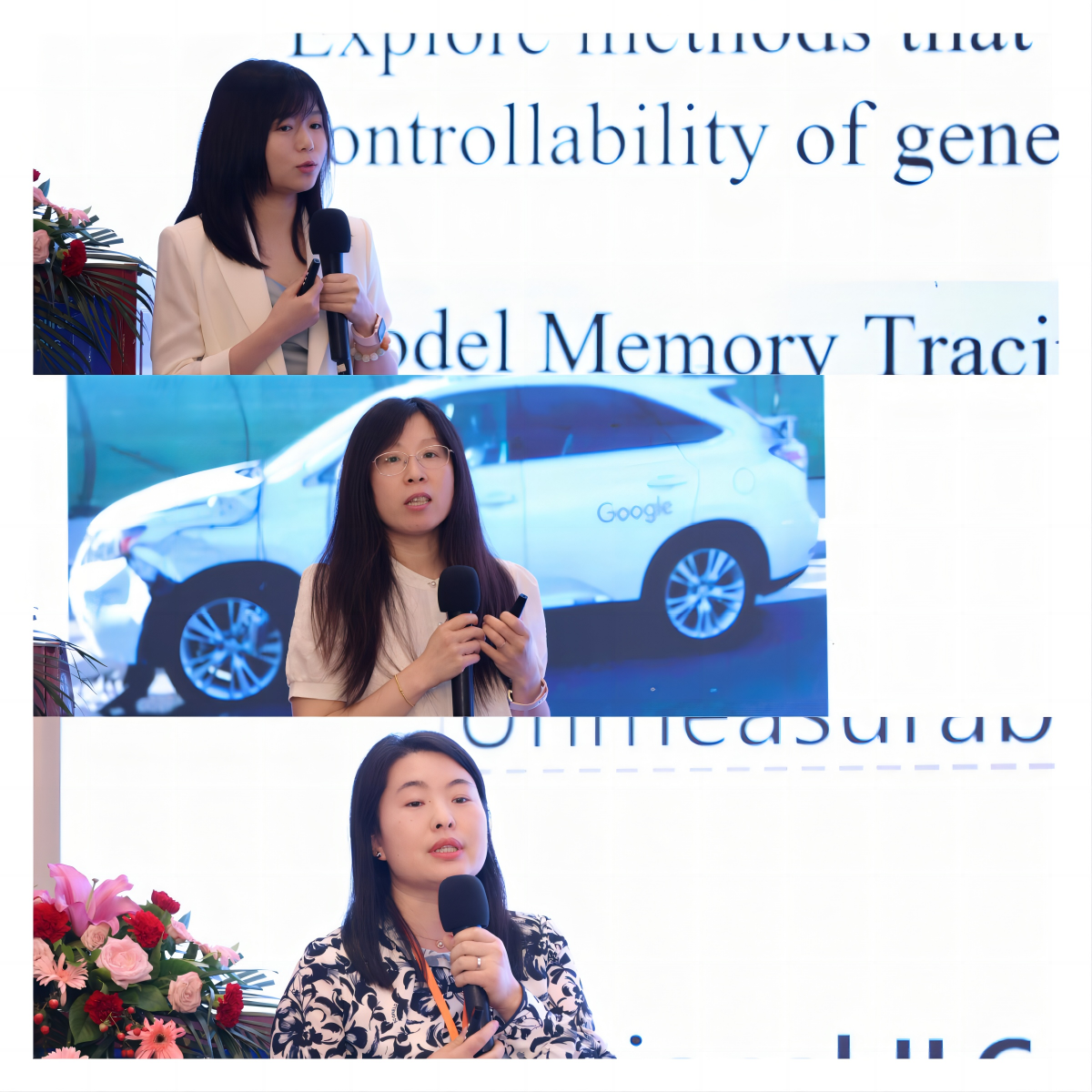
Three female scientists share the scene.
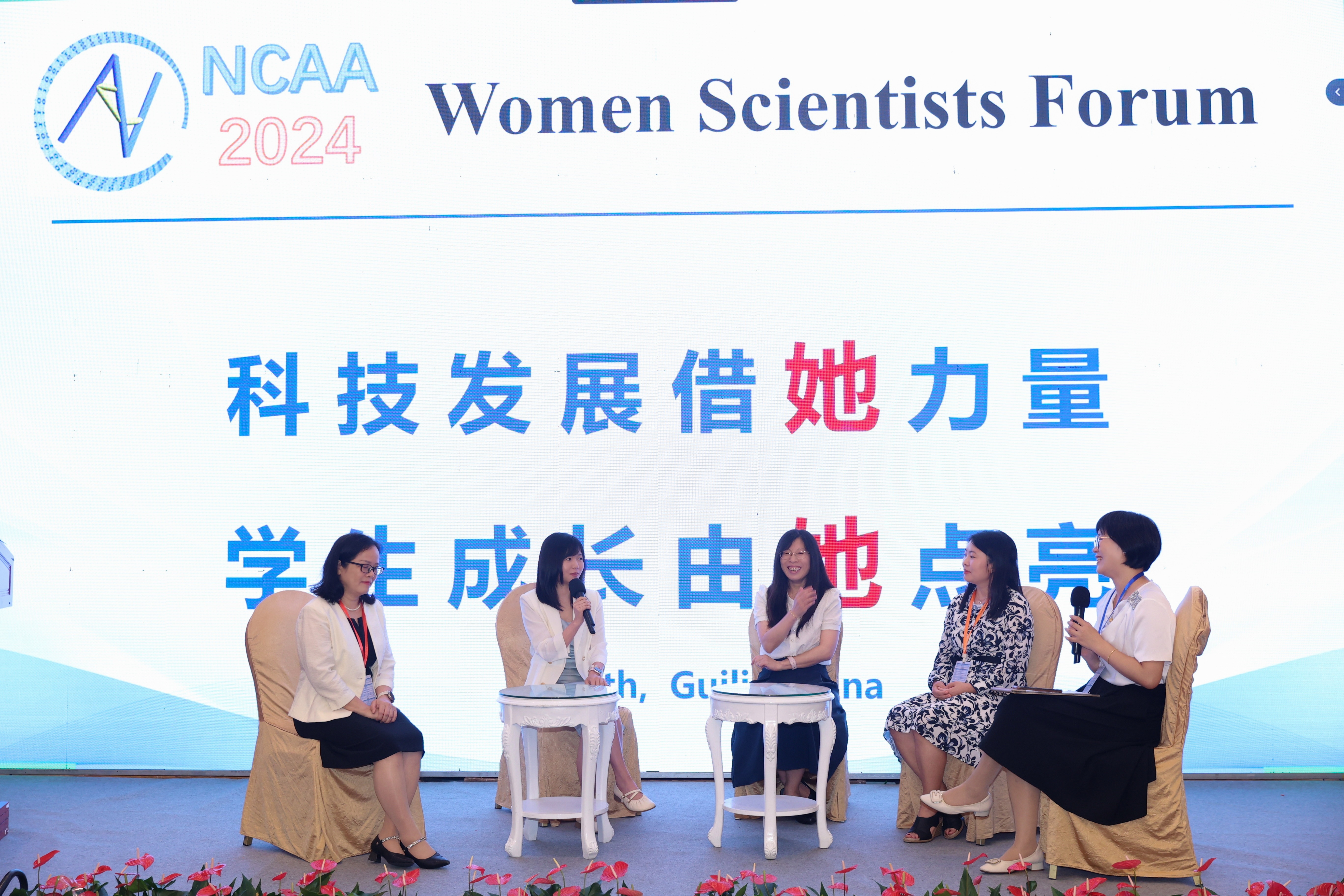
Roundtable Forum for Women Scientists
On the afternoons of July 6 and 7, the conference held three parallel sessions, featuring a total of 88 academic paper presentations across more than 10 topics related to neural computing and applications. The presentations were conducted in a hybrid format, with live Q&A and academic discussions.
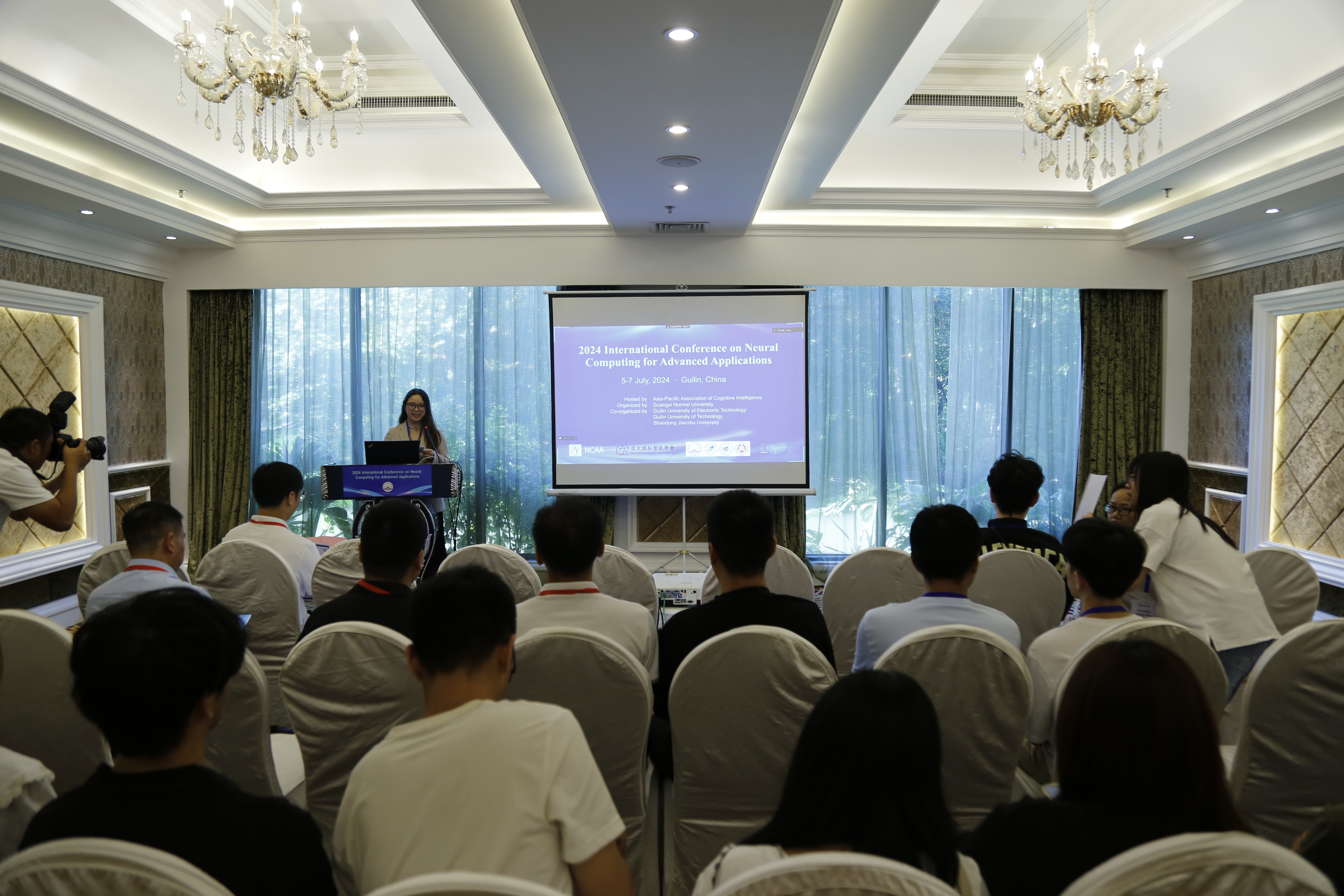
The scene of the sub-session report.
The 2024 NCAA brought together experts and scholars from around the world engaged in neuroscience and interdisciplinary research. It not only continued to explore traditional themes in neural computing but also emphasized the applications of data mining, machine learning, and neural computing in language research, as well as the integration of natural language processing, deep learning, and language-neural computing. The conference also facilitated in-depth exchanges on large models and their applications, significantly advancing the development of neural computing and its interdisciplinary research.
